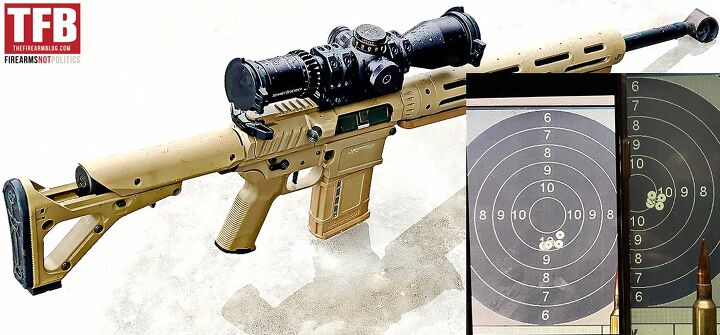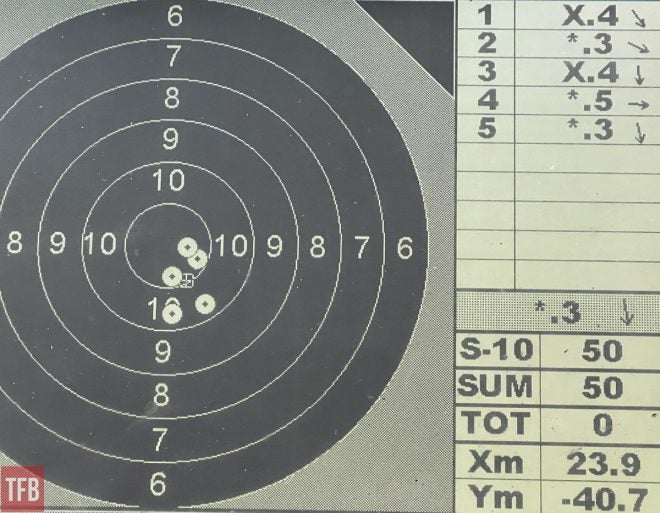In 2023 I’m going to give Gas Gun Precision Rifle Series a go in a few competitions, to see what a DMR-style rifle and myself can accomplish together. All the experts have always told me that gas guns aren’t accurate enough. Bolt actions are always going to be more accurate, period. Now, I’m not saying they are wrong, but I like to try things out myself. Preferably with help from friends. Our results can be found in this article, which is not intended to be scientific. Take it for what it is, a fun day at the range with some interesting discoveries. Can a gas gun beat a bolt-action in terms of precision, or is the author on very thin ice here? Let’s see!
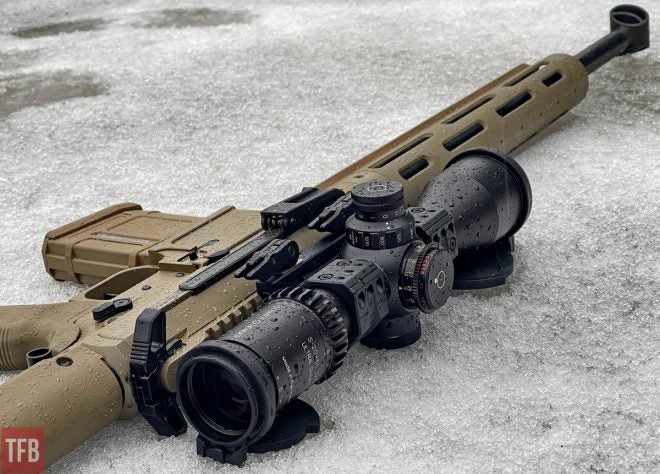
The Gas Gun – JP Rifles PCS-12 6.5 Creedmoor
I had recently re-barreled my JP Rifles PCS-12 from .308 Win into a 22″ 1:8 twist barrel in 6.5 Creedmoor. The lower has a Triggertech trigger and a Magpul K2+ grip, and the handguard got a Magpul ARCA rail. This is an AR-10-style rifle, with a side charger, I bought many years ago. It never really performed in 308 Win and considering how much I spent on the rifle and the custom Cerakote, I was not impressed. I was lucky to find a second-hand barrel, also made by JP Rifles, for less than $150 and that’s how all this started.
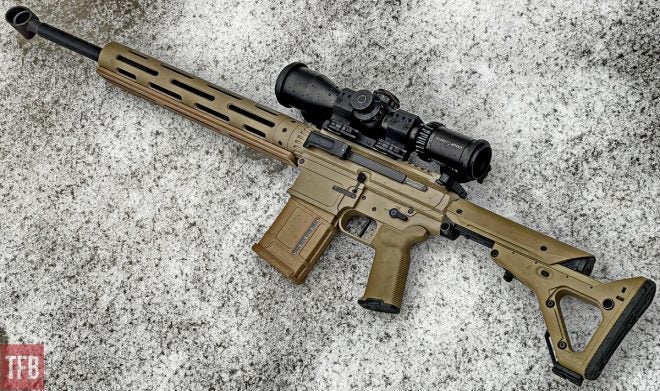
Below: The next DMR/Sniper rifle of Germany’s Special Forces, previously G26 now called G210, may not look far from this. At least this is the riflescope they are going to be using. The G210 rifle is yet to be decided by the German Army. (Source)
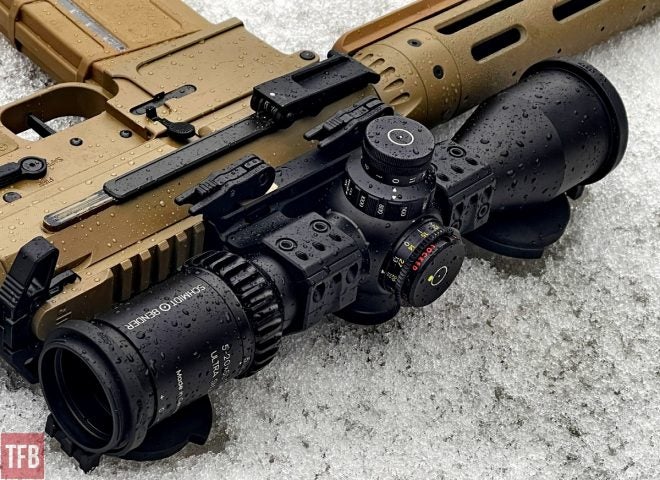
I also had some nice optics to go with this rifle. Schmidt & Bender had just sent me one of their first 5-20×50 PM II Ultra Short riflescopes of the second generation to review. This upgraded riflescope is going to go on the not-yet-decided G210 Sniper/DMR rifle. The G210 is to be used by Germany’s Kommando Spezialkräfte (Special Forces Command, KSK) and Kommando Spezialkräfte Marine (Kampfschwimmer or “Combat Swimmers”), both special units of the German Army and Navy.
The main, new features are the Integrated Illumination Parallax (LPI) side turret and the newly designed magnification ring. No rifle performs better than its optics, and the 5-20×50 PM II Ultra Short provides a lot of optical performance in a relatively small, light and durable package.
You can find reviews of the optics used on the Gas Gun in the article below:
- TFB Review: Schmidt & Bender 3-27×56 PM II High Power Riflescope + Aimpoint ACRO C-1
- TFB Review: Schmidt & Bender 5-20×50 PM II Ultra Short Series
Below: It seems to be raining every time I review an optic from S&B. They seem to like it, but snow and rain combined was a new challenge! Note that the illumination has moved to the parallax wheel, and the magnification wheel is brand new. Not a gigantic leap forward, but these improvements will be welcomed by a lot of users. The optics are the same as the previous model. The mount is a quick detach from Spuhr, so I can move it around to other rifles.
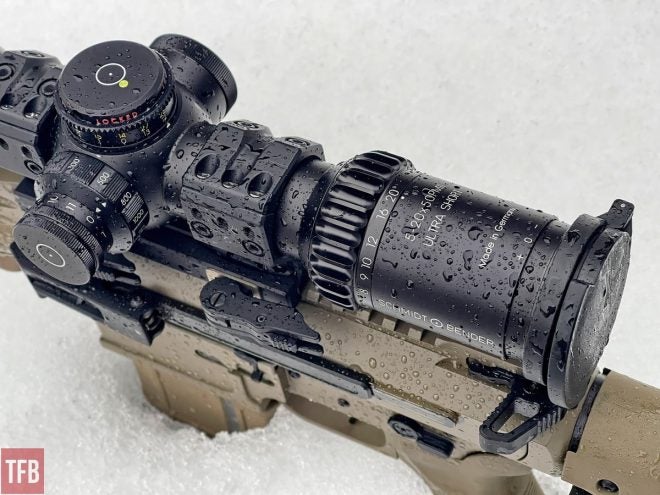
It’s important to level the riflescope when you are shooting at long distances and to keep the rifle leveled once you pull the trigger. Note the MDT LRA SEND iT – MV3 Electronic Level on the Picatinny rail, which is a great help. Originally made by Send iT Electronic Level, now bought by MDT, it offers 5 color LEDs to show you how your rifle is canted. It’s calibrated on 12 axis from the factory.
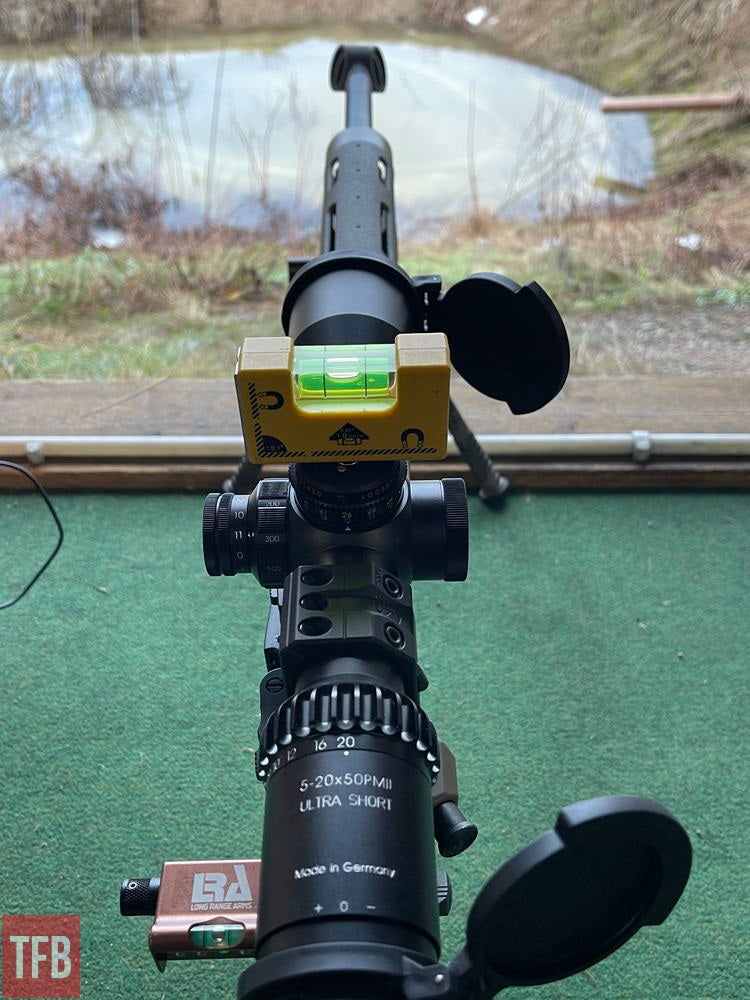
The reticle is MSR2 from Finnaccuracy. The length of the S&B 5-20 Ultra Short is just 299 mm, or 11.77 inches. It’s very compact, yet a very competent optic. Here you can see the MDT LRA SEND iT at work, all is green and you don’t have to get your eyes off target to notice it.
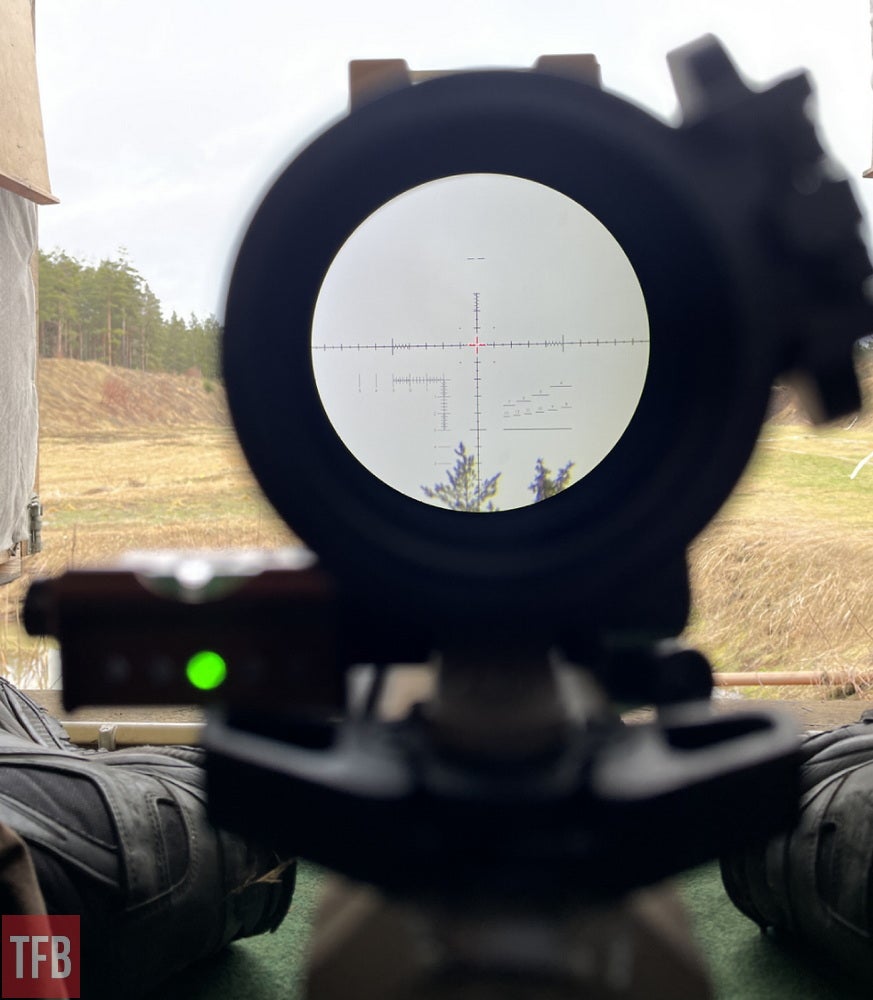
We tried a suppressor first but ended up using a JP Rifles compensator – slightly tilted – with a temporary attachment. Range Officers and bystanders won’t apprecite it, but we’ll get less gas in our eyes. Note the ARCA rail from Magpul under the handguard.
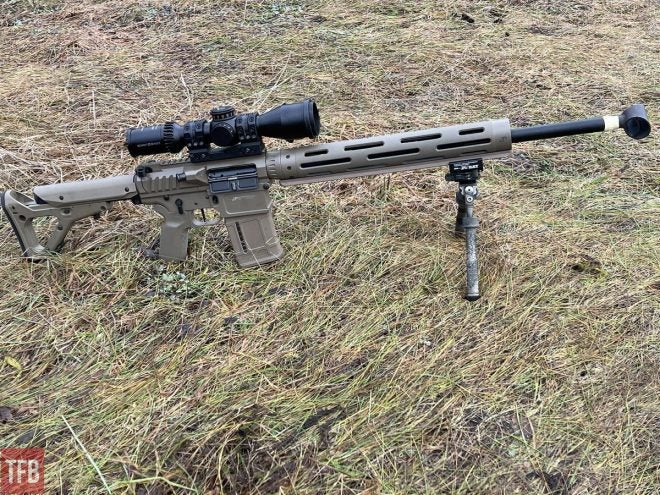
Here is the Gas Gun from JP Rifles with the S&B 3-27×56 PM II and the GR2ID reticle. Note the LabRadar to check bullet speeds.
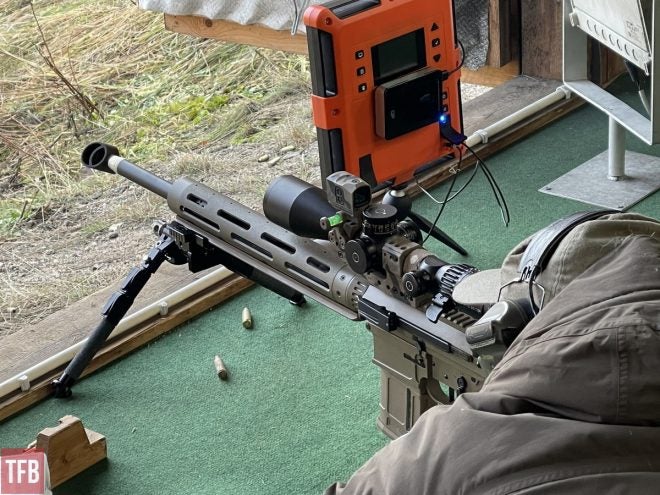
Here is the reticle of the S&B 3-27 PMII called GR2ID. It’s great for a lot of things, and I like it a lot for these kinds of precision groupings.
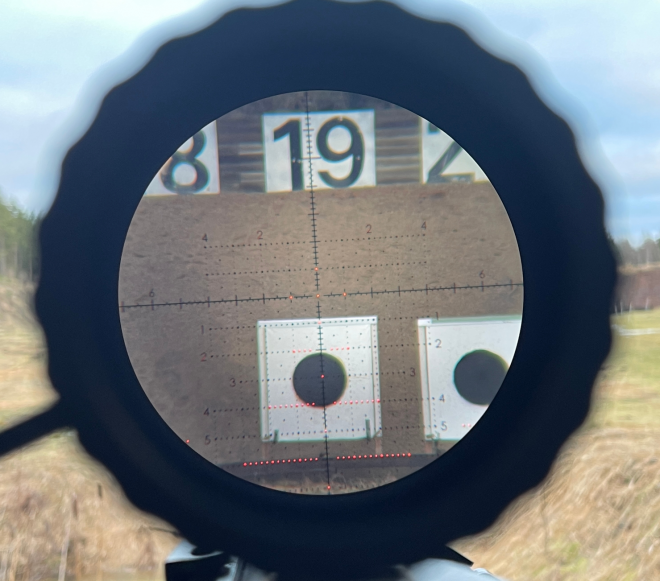
If you ever wonder why I put a red dot on top of my systems, here’s the reason. If you zero them you can actually shoot with them in an emergency, and they’re great for switching targets fast.
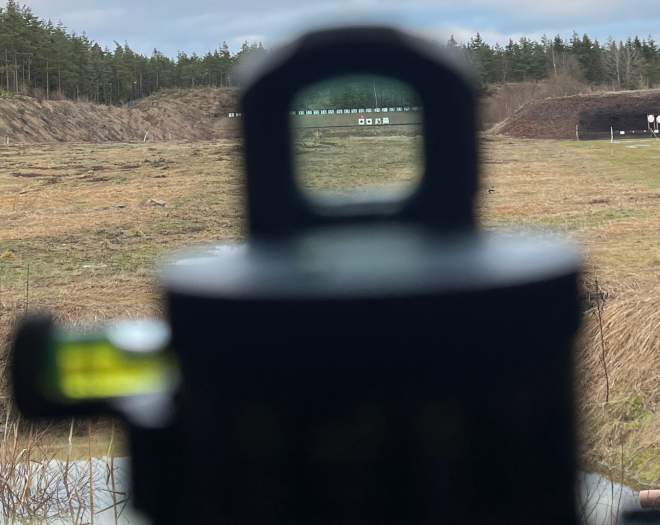
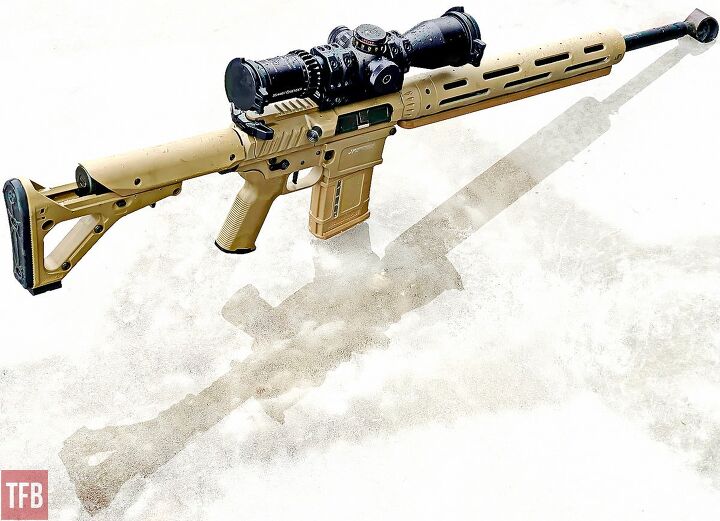
So that’s the gas gun. Now let’s take a look at the bolt-action.
Bolt Action – Tikka T3x UPR – Spuhr SICS chassis
This Tikka T3x UPR in 6.5 Creedmoor now lives in the brand new Spuhr SICS chassis. In terms of optics, it has the new Zero Compromise ZCO840 with the MPCT3X reticle, mounted in a Spuhr. Great optic, but I personally didn’t like this reticle for this kind of shooting (although I shot well!). It’s probably much better for shooting steel, as normal PRS would be. As you can see, there’s a barrel tuner and a compensator as well.
All in all, this Tikka is a fairly inexpensive rifle, that got a lot of top-of-the-line makeup. You would still be able to perform rather well with an original Tikka T3x UPR, so don’t be afraid to show up at a competition as a beginner.
I’ve shot this rifle twice at 300 meters, in different configurations and almost a year apart. Both times I shot 50/50 in very tight groups, and found that sufficient to prove its performance. Finland delivers.
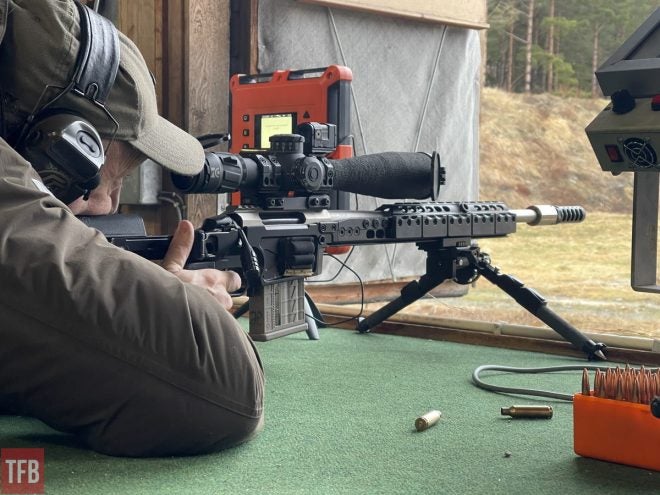
Different bipods – MDT vs. B&T Industries. The MDT felt extremely stable.

The new chassis from Spuhr works great. You can find them here for both Tikka and Remington 700: https://spuhrwebshop.com/en/chassis/
The Spuhr ARCA Rail Grabber, mounted on the MDT bipod further up, is worth a look as well.
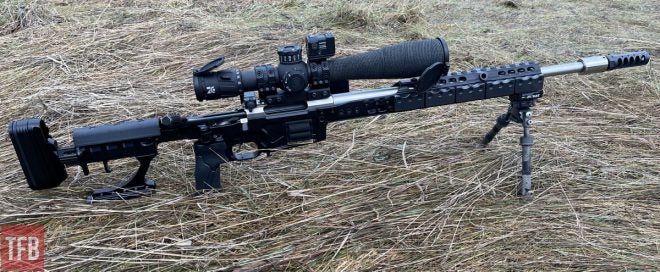
When shooting for groups, we used all optics on maximum magnification. 40 times with the ZCO vs. 27 times on the S&B, the ZCO had an advantage, but we can’t say it had anything to do with the outcome.
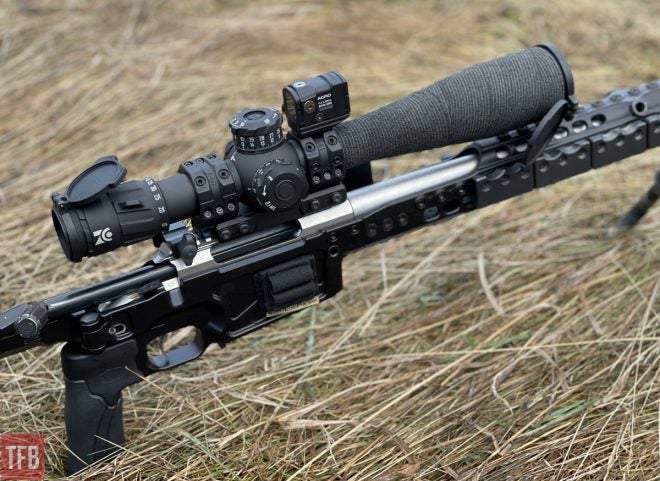
The Ammunition
I like shooting a lot more than I do reloading ammunition, and it’s also a matter of time. So I try to be a nice guy and have friends who love reloading a lot more than I do. Therefore, thank you so much for the ammunition provided for this test. In this case, both rifles used the same kind of ammunition, reloaded with a Dillon 1050.
We’re using 6.5 Creedmoor Lapua Scenar 108 gr. The bullet speed was 838 m/s at +8C. You can see our data below, which we used in Strelok Pro and some other ballistic calculators to verify.
LabRadar data below, from one of the strings.
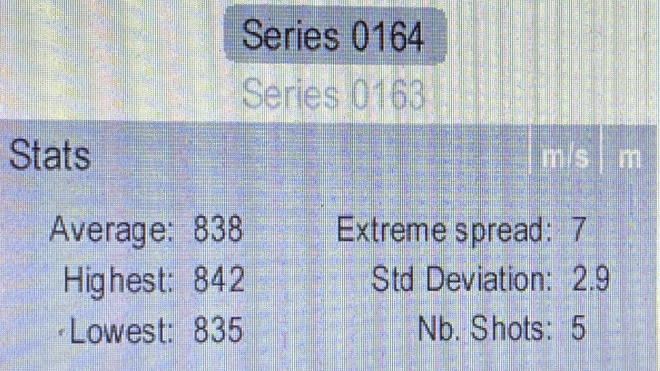
And from StrelokPro. At the time, we didn’t know the zero offset (seems to have been about 72 mm).
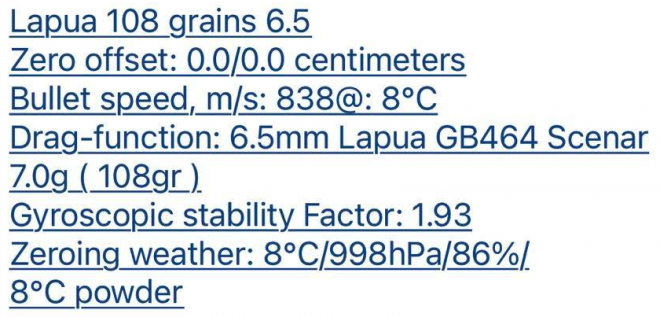
With this ammunition, it was possible to shoot great groups at 300 meters repeatedly, in both rifles. Each ring is 5 cm (1.968″). Ring 10 is 10 cm in diameter, and these are all well inside. The inner ring is the inner ten.
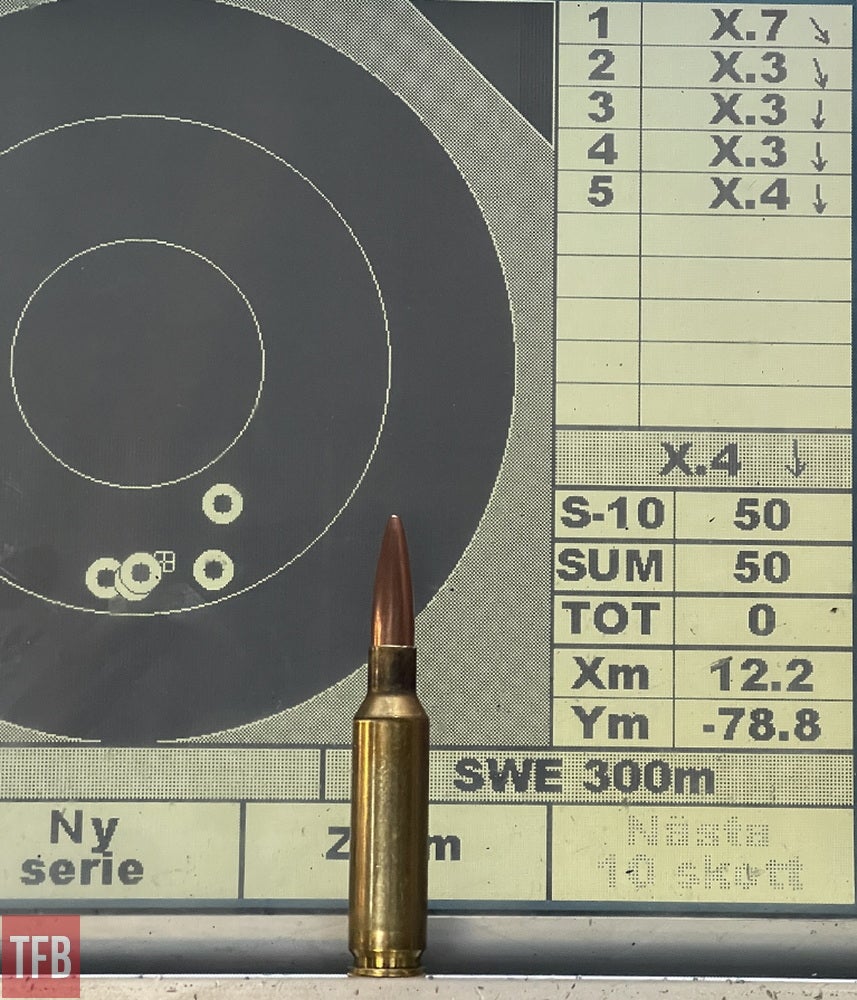
And another example. As often experienced, at least by me, you get a 3+2 kind of grouping.
It seems we can use this ammunition, at least if there’s not so much wind. We’re going to try the 130 gr as well later on.
Conclusion – If there ever was one
Two people shot the two rifles, back and forth, and always on an electronic Kongsberg target at 300 meters. They were shot the same day, same conditions as much as possible, and we didn’t have much wind or change in temperature over the day. We did an artificial overlay below. The group to the left is from the gas gun and the right is from the bolt-action. The performance is very similar!
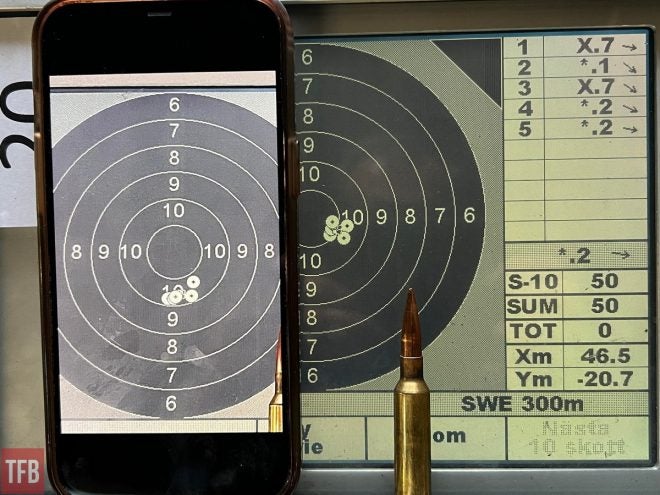
Although none of us said anything, we had pretty low expectations for the gas gun (sorry JP Rifles!), but at the end of the day, we were both surprised by how well it performed. I’m so happy with my new, second-hand, barrel.
We’re 100% aware that long-range shooting kind of starts at 300 meters, and that’s the furthest we shot due to the limits of the shooting range. But we need to start somewhere, and the results look very interesting. I’m going to shoot the gas gun for a few competitions over the year, and hopefully, I’ll write about the outcome at the end of 2023!
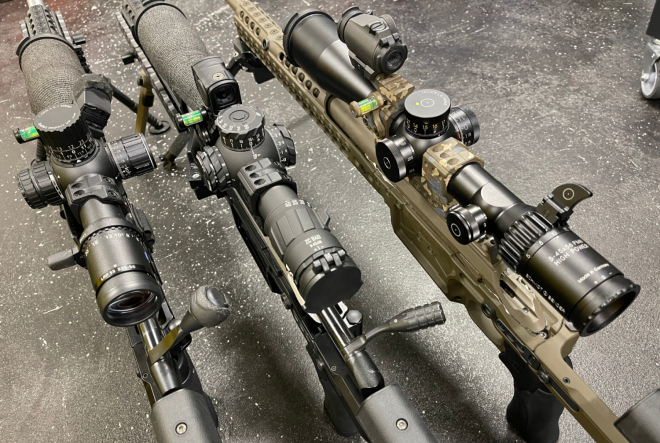
Various bolt-actions in Spuhr SICS chassis. Optics from Zeiss, Zero Compromise and Schmidt & Bender.
Overall, the Tikka T3x had much less recoil, and while the JP Rifles gas gun is not lightweight, it’s much lighter than the bolt-action. It’s difficult, not to say impossible, to track the bullet due to the recoil of the gas gun. That’s one of the drawbacks of gas guns, you have to live with the bolt going back and forth.
At the end of the day, I managed to shoot my best group ever. Certainly not my tightest group ever, but I managed to put all 5 rounds inside the inner ten. I’m not sure I’ll ever be able to do that again, but I’ll keep trying.
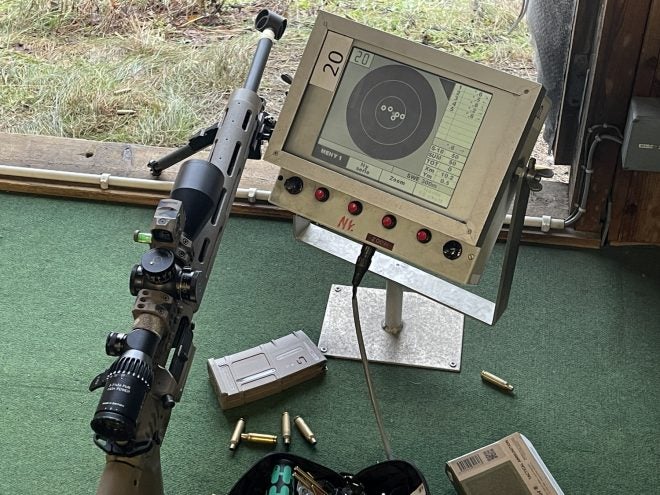
A close-up. Note that the system calculates the center point, which must be less than 1 cm to the right of the center of everything. 6.5 Creedmoor is an incredible caliber.
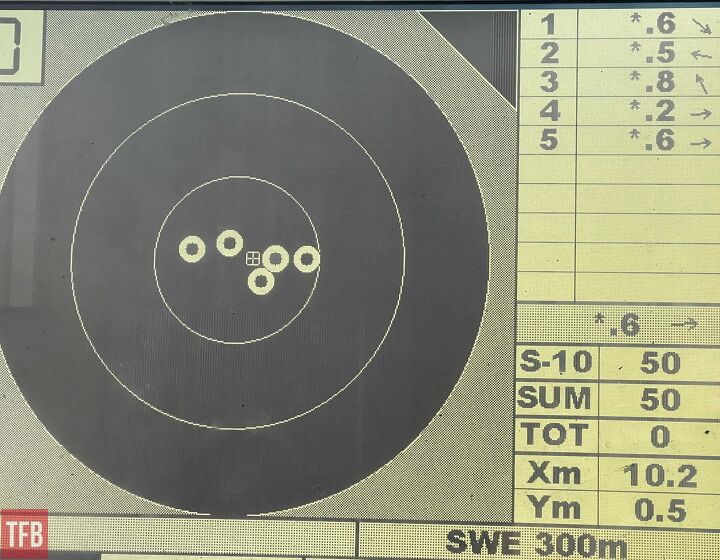
Here’s a small steel target hit by a 6.5 Creedmoor. It falls after two hits. Captured with an AccuFire Omnis Spotting Scope.
That’s all folks! I hope you found that entertaining and look forward to your comments on the Gas Gun vs Bolt-Action subject. Please be kind!
 Your Privacy Choices
Your Privacy Choices
